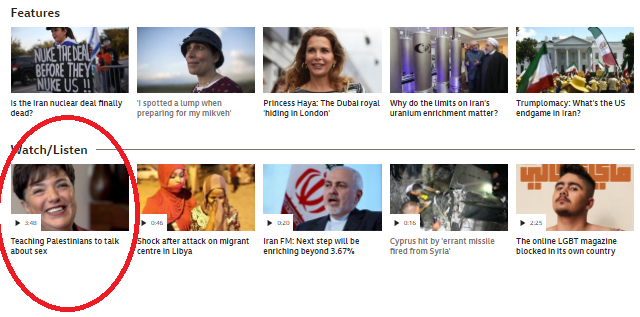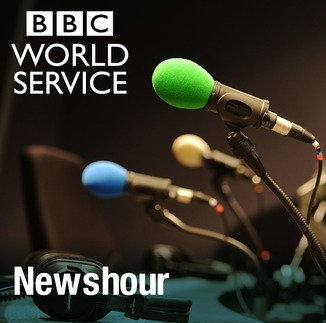Change and reform at the BBC has been the theme of quite a few recent media reports – including some coming from the BBC itself.
Although it has yet to be approved by the BBC Trust, a proposal has been put forward to close down BBC Three television in the autumn of 2015 and to move its content online. The future of BBC Four is apparently also up for discussion. 
“BBC Four could be the next television channel to be scrapped, after the corporation confirmed that BBC Three was to become available on the internet only.
Danny Cohen, the director of television, said that he was unable to guarantee the future of BBC Four, the highbrow art and culture channel, as the organisation sought cut costs.
He warned that if the next license fee settlement was not sufficiently generous, the channel could be next in the firing line. He was speaking after the BBC unveiled plans for the youth channel, BBC Three, to be moved online, to save £50 million a year.
Asked on Richard Bacon’s 5Live radio show if he could guarantee the future of BBC Four, Mr Cohen, a former controller of BBC Three, said: “The honest answer to that is ‘No, we can’t say for certain what will happen to BBC Four in the future’.”
He added: “For BBC4, that means if future funding for the BBC comes under more threat then the likelihood is we would have to take more services along the same route.” “
As The Telegraph points out:
“The comments will be seen in the context of the charter renewal and license negotiations with ministers, due to be completed by the end of 2016.
They serve as a warning to the government and other opinion formers that another settlement considered harsh by the BBC will put other services at risk, including BBC Four – a favourite of the political and chattering classes.”
Concurrently, some MPs are proposing to decriminalise non-payment of the BBC licence fee whilst the BBC’s director general recently promoted the idea of extending it to cover BBC iPlayer.
“Hall used a speech at the Oxford Media Convention on Wednesday to mount a robust defence of the BBC and the licence fee, saying it was “one of the finest broadcasting organisations in the world” and “great value for money” reaching 96% of the population ever [sic] week.
Far from the licence fee being abolished, as some critics have argued, Hall said it should be extended to take account of the different ways in which people consume TV and radio in the digital age, on their computer, iPad or smartphone.”
Seeing as the licence fee is currently obligatory payment for anyone watching television in the UK even if they do not actually view BBC-produced content, Tony Hall’s comments obviously raise the interesting question of whether the same principle would, under his proposal, be applied to owners of computers, tablets or smartphones regardless of whether they in fact access BBC iPlayer or not.
In its own report on Tony Hall’s proposal to extend the licence fee to BBC iPlayer, the BBC devoted considerable column space to the amplification of a recent report produced by the Reuters Institute for the Study of Journalism.
“Speaking at the Oxford Media Convention on Wednesday, however, Lord Hall said the “flexible” nature of the licence fee allowed it to adapt over the years to encompass changing patterns of viewers’ behaviour.
His comments come amid renewed calls for the licence fee to be shared with other broadcasters and for it to be cut in response to the BBC’s alleged mismanagement of its financial affairs.
They also coincided with the publication of a new study that claims cutting the BBC licence fee will limit consumer choice and value for money.
The report suggests the BBC would be “reduced to a minor sideshow” if so-called “salami-slicing” continues.
Without BBC television, it claims, most viewers would “have a greatly reduced choice of programmes they wanted to watch”.
The report, by Oxford’s Reuters Institute for the Study of Journalism, is entitled What If There Were No BBC Television?: The Net Impact on UK Viewers.
Its authors, the academics Patrick Barwise and Robert G Picard, say that without BBC TV there would be less revenue in the TV industry and as much as 25% less investment in content.
The latter, they write, would be “a severe blow to British production companies” of the kind that generate “first-run UK content”.
The report assumes that commercial broadcasters would increase their investment in content if they were no longer “crowded out” by the BBC.
Despite this, it insists there will be less overall investment – and that most UK households would “suffer detriment”.
It says they would either be “paying slightly more for slightly less choice” than they currently do with the licence fee, or “paying slightly less for much less choice”.
“The onus should now be on those arguing for a smaller BBC to provide some kind of evidence and argument about why they believe it would lead to a better outcome for the UK public,” the report continues.”
However, this BBC article neglected to inform readers that the organisation which produced the seemingly objective, academic report on “the net impact” of potential changes to the BBC – the Oxford University-based ‘Reuters Institute for the Study of Journalism’ – was, according to its 2012/13 report (see page 51), a recipient of funding from the BBC College of Journalism, BBC Global News, BBC Media Action and the BBC Trust and that its advisory board (which, inter alia, gives “advice and guidance on general research directions”) is chaired by Chris Patten, who is also of course the Chancellor of Oxford University and chairman of the BBC Trust.
Clearly the gloves are off in the BBC’s battle to keep – and even extend – the licence fee, but it will be interesting to see whether the funds provided by BBC licence fee payers will also be used to enable them to read, watch or hear alternative views on the subject and how the BBC will handle the rather glaring conflict of interests when it comes to reporting the debate surrounding its own funding.




